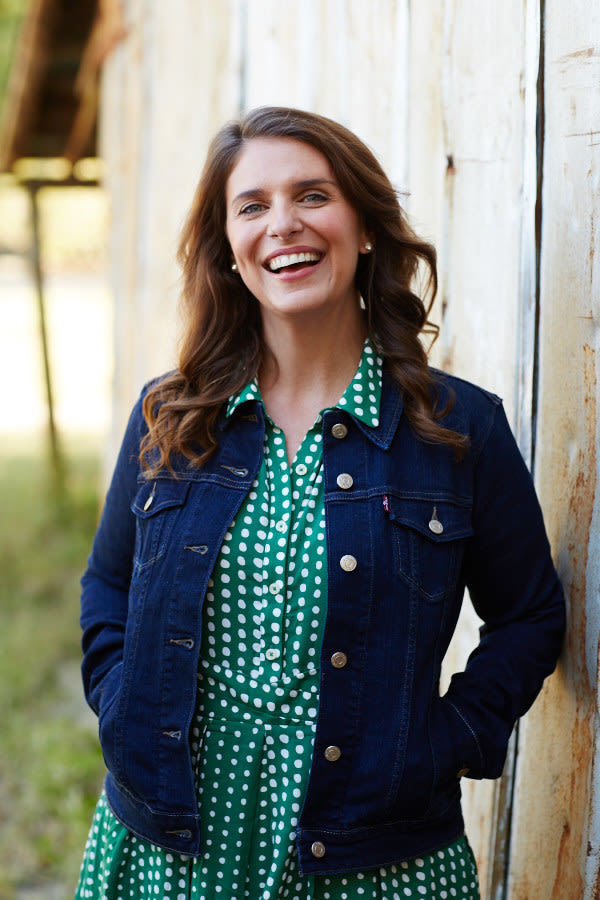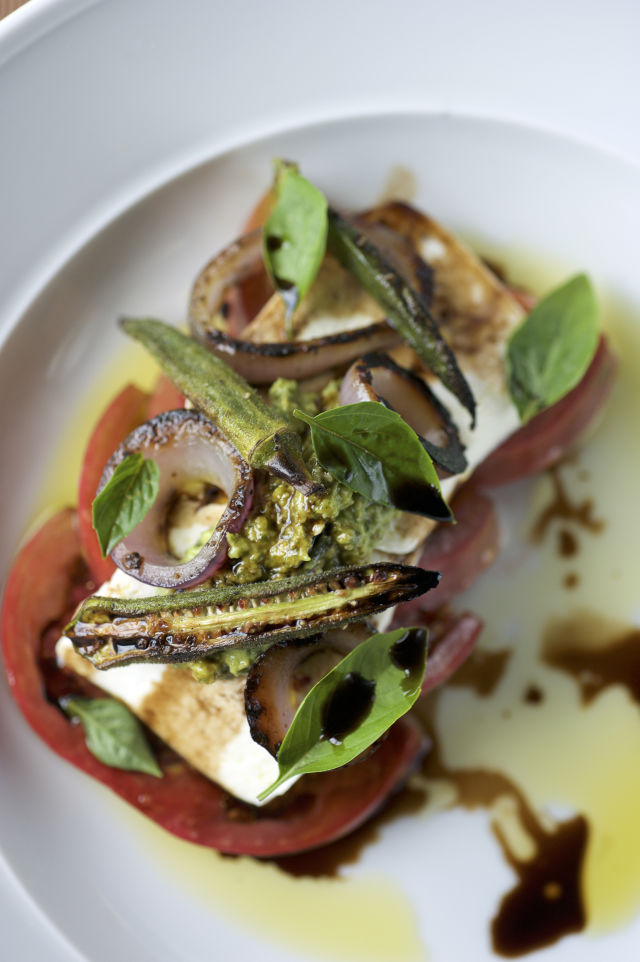Chef Vivian Howard Talks A Chef's Life, Southern Food and Her New Book

Vivian Howard
Image: Stacey Von Berkel
In the opening credits of her James Beard- and Peabody award-winning TV show, A Chef's Life, Vivian Howard looks directly into the camera and says that she left her hometown in rural North Carolina swearing she'd never move back. But after a successful stint in New York City, working with some of the restaurant industry's top chefs, Howard did just that. Now she and her husband and partner, Ben Knight, run the much-lauded Chef & the Farmer, which was serving farm-to-table fare long before it became a popular catchphrase, and Howard has become a vocal advocate for Southern food and Southern food history. On A Chef's Life, she speaks passionately about ingredients from heirloom tomatoes to pork to mayonnaise, and her new book, Deep Run Roots, aims to make Southern ingredients of all kinds accessible to everyone.
In advance of A Chef's Life's return in a few weeks and the release of Deep Run Roots in October, we talked to Howard about Southern food, the chefs currently on her radar and what she'd tell young women hoping to emulate her success. And for even more from Howard, be sure to check out our October issue, on newsstands later this month.
What differentiates North Carolinian food from other Southern food?
When people think of Southern food, they think of port cities, like Charleston and Savannah, where the food is heavily influenced by the sea. Where I live [in Eastern North Carolina], it's a little more insular—the food is a reflection of agriculture; it's the food of the frugal farmer. Historically, you'd grow most of your own food and do everything you could to preserve it so that you'd have fruits and vegetables and protein throughout the winter. I'd say much of North Carolina's food is based on that.
How does your new book contribute to the North Carolina/Southern food canon?
It's based on the larder of Eastern North Carolina and much of the rural South; the ingredients that define our cuisine. The first recipe in every chapter is a traditional or historical preparation of that particular ingredient, and a big part of the book is history. Then it branches out from there. For example, in the collard chapter, the first recipe is collard stew with ham hocks, then [it spreads out to] collard and peanut salad, creamed collard greens stuffed in potatoes—the recipes grow in terms of creativity.
You graduated from college with a degree in journalism. Did you enjoy writing Deep Run Roots?
I really did. I got into cooking because I wanted to be a food writer, so the opportunity to write this book was a huge gift.
What do you hope people take away from it?
Most of the ingredients are fruits and vegetables, and a lot of people shop at farmers' markets nowadays but they buy things based on beauty. So I want to give people the confidence to cook with ingredients they don't always turn to—for example, if you get a big handful of turnips, I want you to be able to turn to the turnip chapter of the book and find something easy and appealing that suits the home kitchen.
And in large part, the book is a narrative and there's lots of storytelling, so I hope people connect to it because of that. Parts of it are very funny, so I hope people will laugh, too.

A dish from Chef & the Farmer.
Image: Doug Young
You have two young children. What do you hope to teach them about food?
I want to teach them that cooking can be one of the most enjoyable life-long hobbies—it can be such a relaxing and therapeutic experience. I want to teach them that food as a resource is finite. Our culture today is geared around wasting food, not placing that much value on it, and that's historically not the way [people in the South] have perceived it. So I want my kids to grow up understanding food the way I did, in terms of preservation and making sure there's very little waste. I want them to be connected to the place where they grew up through its food.
Which Southern chefs are on your radar right now?
There's a chef in Virginia, Travis Milton, who does what I do but with respect to Appalachia. He's been living in Richmond, but decided to move back to his small hometown to open a restaurant. So many chefs understand that we need to pay attention to our food traditions, but are doing it in large cities—Travis is one of the few people who understands that we need to nurture those traditions where they exist, that the rural South is as important as the urban South. I'm hopeful that he will be successful.
What are your hopes for young women who want to become chefs, open a restaurant and follow your career path?
I've not experienced a whole lot of gender bias in the kitchen, although there are certainly not as many women at the helm of their own restaurants. [Working in a restaurant] is not the same as being in an office setting. When you work in a kitchen, it's difficult to take six weeks off for maternity leave. I'm hopeful that restaurants will become more family-friendly environments that allow for that, because that's what I see as the biggest challenge. Hopefully all the little girls who find [my career path] appealing will have an easier journey.
And finally, what can we expect from this season of A Chef's Life?
We approached it like it was going to be the last. It's not, but we pulled out all the stops with some ingredients that are little-known, like Jerusalem artichokes. We also featured a few ingredients that we couldn't not cover on a show about Southern food, like watermelon, catfish and mayonnaise. We actually did a blind mayonnaise tasting and we were all surprised by the winner!



